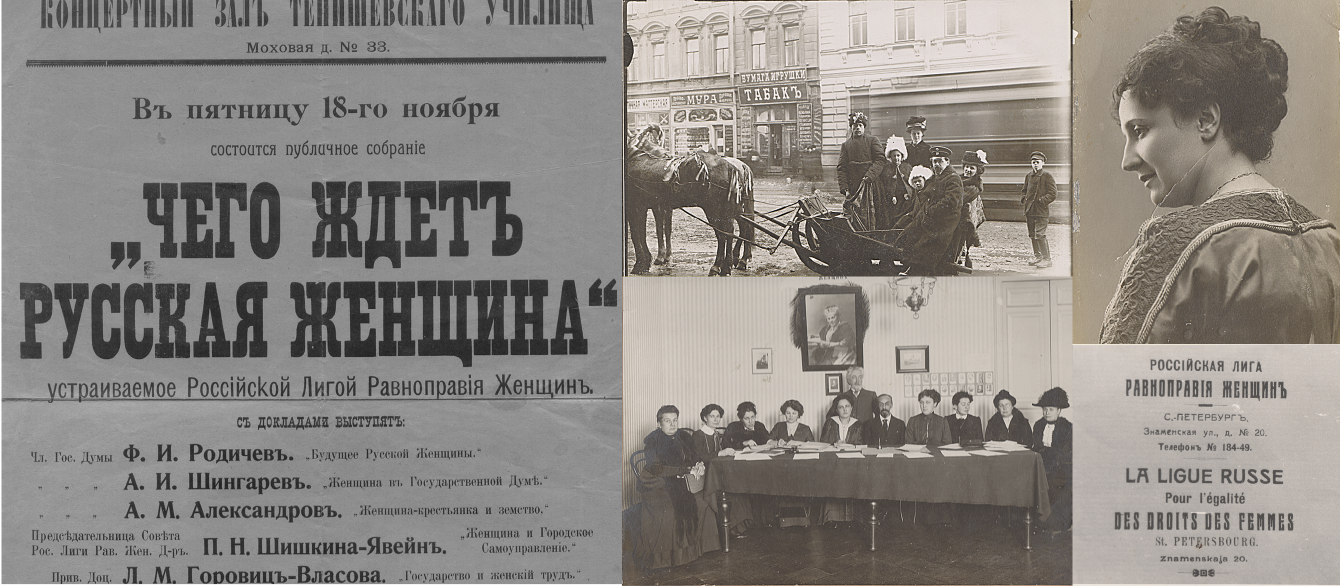Left to right: Poster advertising a public meeting held by the League on Nov. 18, 1916, “What Is the Russian Woman Waiting for?”; Shishkina-Iavein and family in horse-drawn sleigh on Nevsky Prospect, St. Petersburg, 1909; Poliksena Shishkina-Iavein, 1911; Meeting of the Russian League for Women’s Equal Rights office in St. Petersburg; Placard: Russian League of Women’s Equal Rights, St. Petersburg.
In the years leading up to the monumental revolutions of 1917, Russian female political activists played key roles in a broad spectrum of political circles and developed one of the first successful movements for women’s suffrage in the modern world. Study of this historical moment, dense with social change and global significance, both introduces students to a dynamic set of historical actors and invites consideration of questions that reverberate far beyond this place and time.
This curriculum unit is intended for students of social studies, history, women’s history, and Russian history at the 7-12th grade level. It investigates the following questions through the lens of the Russian Revolution:
-
Can groups with different values, but intersecting goals, work together?
-
How can elements of individual identity (gender, class, citizenship) inform political values and diverse social movements?
This curricular module contains:
-
Background for educators, including the context of women's lives in pre-revolutionary Russia, the revolutionary movement, and intersections of class and gender.
-
Lesson plans based on Common Core State Standards
-
Primary sources for student engagement.
-
Multimedia resources
-
Footage from a 1917 march for women's suffrage in Petrograd.
-
Interview with scholar Rochelle G. Ruthchild
-




